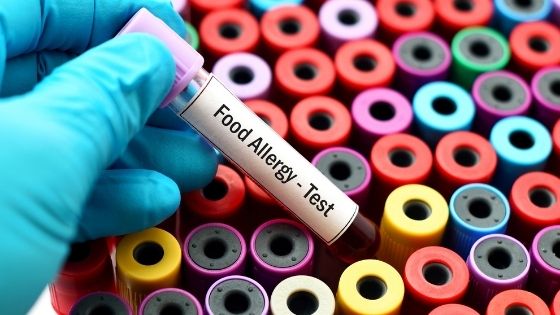Key Aspects of Testing Food Allergies

Key Aspects of Testing Food Allergies? Food-induced allergies are more widespread than most folks assume and typically happen when the body’s immune system responds negatively to some proteins in specific food sources. While mild cases may not cause much damage to the health, severe allergic reactions can be fatal or may lead to irreversible repercussions in some people.
Invariably, reliable food allergy testing is paramount, especially for those intolerant to particular ingredients and elements in some edibles. The test results can help medical practitioners establish the root cause of the reaction and chart an effective treatment plan.
It is vital always to remember that not everyone is allergic to similar things, and not all treatments work the same way in people dealing with common allergens. Refer to the following details for more information on why testing matters and the right way to do it.
Why is it important?
Significant research on allergy testing, allergens, and other related factors is continuing, and more is underway, as it can help doctors treat people with severe reactions. Primarily, these tests are done on people with underlying chronic health conditions such as eczema or asthma. It helps medical professionals identify foods that may trigger these ailments or make them worse.
These tests are also prescribed when people exhibit specific symptoms and disorders, especially after eating something particularly disagreeable with their bodies. For instance, an adverse reaction to peanuts might typically result in a breakout of hives on the skin, a swollen tongue, and other painful side effects or even cause an anaphylactic shock. Similarly, those allergic to certain fragrances, latex, or some metals might experience painful skin reactions such as blisters, rash, itchiness, or hives.
Therefore, it is imperative to test and identify these triggers as negligence may be a costly mistake.
Prevalent allergens and tests
While anyone can be allergic to practically anything, some common allergens to watch out for include peanuts, milk, tree nuts, soy, gluten, eggs, wheat, fish, and shellfish. Moreover, some folks find it challenging to digest sesame seeds, unable to ingest anything with even a tiny amount of this ingredient.
Doctors can test for these things in several ways, determining the best course of action based on subjective patient circumstances and reactions. Commonly, they use the following methods.
- Skin pricks - Medical experts use a thin needle to inject potential allergens into the skin to identify the specific ones causing the reaction.
- Patch test - This is a test that determines dermatitis by placing the pathogen on the skin and covering the area with a bandage for two to three days to discover the reaction upon direct contact.
- Physical examinations- These are thorough examinations of the body to identify mild, moderate, and severe symptoms, helping them determine if they are indeed the result of an allergen.
- Elimination diets - Patients are asked to eliminate specific foods from their diets for a couple of days and introduce them after the set time to study reactions.
Besides these, blood tests and oral food challenges are common test allergy variants.
About IgG food allergy test

There are several reasons certain foods cause adverse and often painful reactions in the human body. It can sometimes be challenging to detect the allergens due to a delayed response to the food source - typically a couple of hours or even days after ingestion of the allergen.
The IgG (immunoglobulin G) test, commonly called IgG Serum or Quantitative IgG, can help detect the specific food variants that cause these reactions, enabling medical experts to initiate a dietary manipulation to help people deal with the allergens. The test is generally performed on severe to moderate symptoms such as asthma, fatigue, migraines or severe headaches, and eczema.
Experts recommend patients consume a wide variety of foods at least two weeks before the test for more comprehensive results. More specifically, you must eat the foods you choose to examine on the allergen panel of the IgG test, ensuring that they are checked thoroughly.
The importance of hiring the right lab
Finding a reliable test laboratory is pivotal if you want high-quality food allergy testing done. Ideally, you should select a reputable lab that lets you book all kinds of tests online, helping your trusted doctor understand and explain the results effectively. Some labs also assist people in finding a respected and trustworthy practitioner for their medical needs.
Typically, it is wise to pick a lab that can perform the test and get the results back to you in approximately ten to twelve business days. Many reputable agencies also enable you to download the reports online, besides providing other services such as oncology, gut health, cardiovascular and hormone health, environmental-related health ailments, etc.
So, find a dependable clinical laboratory and book professional allergy testing to enjoy safer food choices and a healthier lifestyle.
